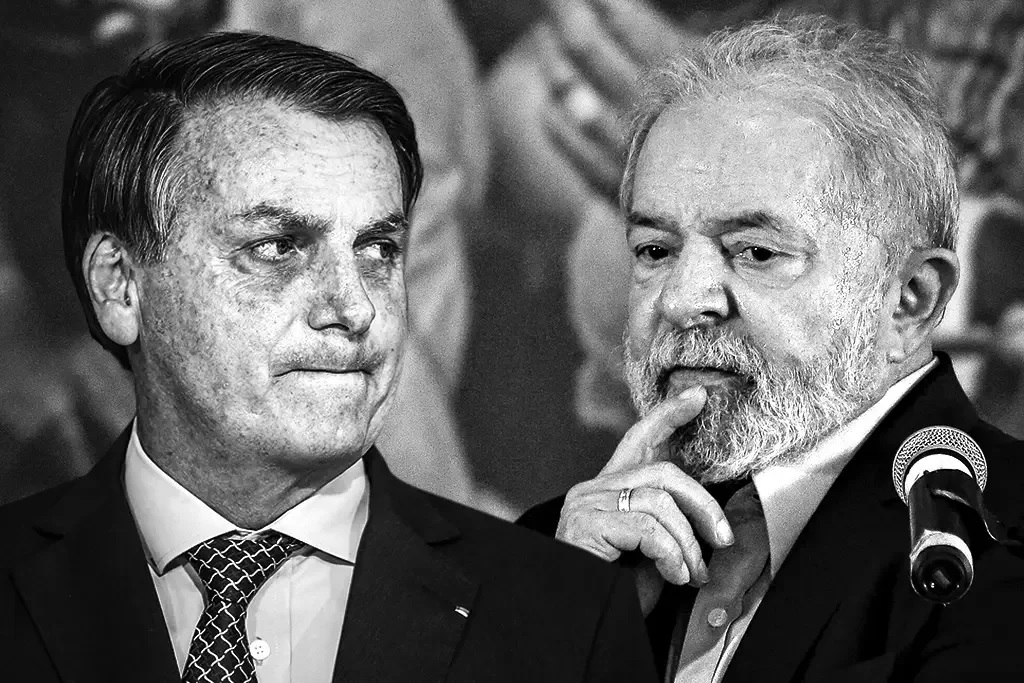Less than four days before the second round of the presidential elections on Oct. 30, Brazilians are bombarded with half-truths, rumors, and lies.
Both, supporters of Jair Bolsonaro (PL, right) and Luiz Lula da Silva (PT, left) are spreading all sorts of rumors on social media without basis or evidence.
Reports of false information by the electoral court have increased by 1,671 percent this year compared to the 2020 municipal elections.
There are, e.g., false claims on social media that leftist candidate Luiz Lula da Silva wants to close churches and allow boys to use the same restrooms as girls in public schools if elected.
And there are many false claims that, e.g., conservative President Jair Bolsonaro has confessed to cannibalism and pedophilia, among other things.

The flood of false reports prompted electoral authorities last week to take what many call the most severe restrictions on free speech ever seen in this young democracy.
It’s a dilemma that social media is raising around the world, and Brazil has taken a tough stance.
Many experts believe that the authorities’ crackdown has already gone so far as to call into question freedom of expression in Brazil.
“What is happening in Brazil with Facebook, YouTube, and other platforms is very similar to what happened in the United States in the 2020 election,” analyzed Vicky Wyatt, campaign director of SumOfUs, a U.S.-based organization.
“An individual can post something that doesn’t get much attention, but over time it gets filtered out and eventually has negative consequences.”
Neither camp is better than the other.
However, the Bolsonarists can be found in much larger numbers on social media than the Lulistas.
According to statistics from the Igarape Institute, the right-leaning YouTube channels received 99 million views in the eight days before and after the first round on Oct. 2, while those of the left had only 28 million.
The Superior Electoral Court TSE, the country’s top electoral authority, announced Thursday that it would ban “false or out-of-context” content that could “affect the integrity of the electoral process.”
In the days leading up to the vote, media outlets such as YouTube and Meta (Facebook) have just one hour – much less than in the past – to remove any problematic content.
Platforms that fail to meet that deadline can be fined up to US$28,000 per hour and also blocked for up to 24 hours.
The president of the TSE, Alexandre de Moraes, said that “the aggressiveness of this information and hate speech” justified the measure.
Prosecutor General Augusto Aras asked the Supreme Court to reconsider the measure, saying it was unconstitutional.
He argued that it constituted “pre-censorship” and violated freedom of expression and the right to inform and be informed.
The Supreme Court considered the request on Tuesday (25).
The election court also banned paid election advertising on the Internet on the two days before and after the election.
The measures angered many Bolsonaro supporters. Others say they are justified by the scale of the dirty war being waged on the Internet.
The disinformation is more radical – and organized – than in the 2018 presidential campaign when right-wing groups were accused of spreading disinformation to favor Bolsonaro.
“What happened in 2018 was a no-brainer. It was something more honest, in the sense that they believed ideologically in what was happening and created channels to be part of the conversation,” explained Guilherme Felitti, founder of Novelo Data, a company that monitors YouTube channels.
Some of these channels have become businesses funded by advertising and donations from the growing number of users.
Several of their creators have run for public office this year.
Enzo Leonardo Suzi, better known by his YouTube name Enzuh, is one of them. He launched his channel in 2015.
When Bolsonaro launched his campaign, Suzi used his YouTube channel to create several WhatsApp groups, including one called “Meme Factory,” to criticize Bolsonaro’s perceived rivals: Mayors, governors, and even de Moraes, the Supreme Court justice.
He was found guilty and fined up to 50,000 reais (nearly US$10,000) five times on defamation charges.
He is also one of the targets of a Supreme Court investigation into the spread of fake news. Authorities are working to stem the tide of disinformation on social media, but while they are better prepared than in 2018, content and new platforms are harder to control.
“I thought of YouTube like a game,” Suzi told The Associated Press.
“My plan from the beginning was to be an agent provocateur, curse corrupt mobsters, get sued, and use this to grow.
His WhatsApp and Instagram accounts were suspended, but not his YouTube channel, where he continues to post daily.

He ran for state deputy but failed to get elected this month.
Bolsonaro has long been concerned that the electronic voting system is being used for fraud.
He recalled that hackers once penetrated the election commission’s computer network.
The electoral court pointed out that the hackers did not have access to information about the vote count.
The ‘Ordem Dourada do Brasil’, a right-leaning organization, published videos in which it promises to go to war “if necessary.”
It questions the electoral system and calls on people to take to the streets to support Bolsonaro.
The Supreme Court and some of its justices have also been the target of campaigns. One publication threatened violence against the justices’ daughters.
Others called for the abolition of the institution.
Last year, the court launched an investigation into a network it accused of spreading defamatory messages and threats against judges.
Police conducted more than two dozen raids and seizures.
The Bolsonaro and da Silva campaigns each denounced disinformation campaigns by their opponents and succeeded in having them blocked or removed by the courts.

